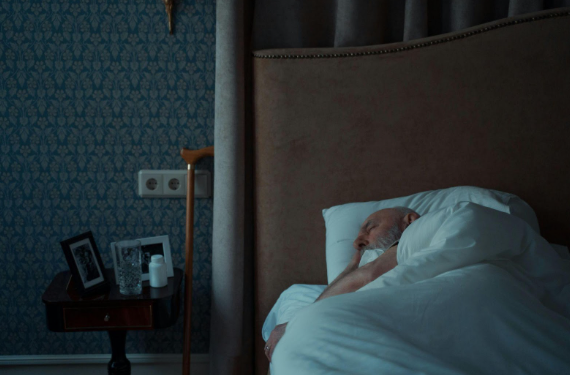Pain and Mental Health: PTCOA's Multidisciplinary Care Approach

Pain affects your body and your mind. Chronic pain, which lasts more than three months, can make you feel sad, anxious, and hopeless. Chronic pain can also cause mental health problems if not treated properly.
At Pain Treatment Centers of America, or PTCOA, we know pain is not a feeling but a whole experience. That is why we treat pain with a team of experts who look at all aspects of your pain.
In this blog post, we will tell you what our team does, how it helps our patients, and how it can help you feel better, so read on to learn more!
What Is Multidisciplinary Pain Care?
Multidisciplinary pain care is a type of pain management that involves the collaboration of different healthcare professionals who have expertise in different aspects of pain treatment. These may include pain management doctors, nurses, pharmacists, physical therapists, psychologists, psychiatrists, social workers, and more. Multidisciplinary pain care aims to provide a comprehensive, personalized care plan that addresses each patient's needs and goals.
The Benefits of Multidisciplinary Pain Treatment
Multidisciplinary pain treatment has many benefits for patients who suffer from chronic pain and its associated mental health issues. Some of these benefits include the following:
- Improved pain relief: By combining different pain treatment modalities, multidisciplinary pain care can offer more effective and long-lasting pain relief than a single modality alone.
- Reduced side effects: Using a multimodal approach, multidisciplinary pain care can reduce each treatment https://www.ptcoa.com/treatments
- modality's potential side effects and risks.
- Enhanced functioning: By addressing the physical, psychological, and social aspects of pain, multidisciplinary pain care can help patients improve their functioning and quality of life.
Pain and Anxiety
One of the most common mental health issues that affects people with chronic pain is anxiety. Anxiety is a normal and adaptive response to stress and danger, but it can become excessive and interfere with daily functioning. People with chronic pain may experience anxiety for various reasons, such as a fear of pain, harm, or even loss.
We at PTCOA understand that pain and anxiety are linked and that treating one can help the other. We offer behavioral health services, such as cognitive-behavioral therapy (CBT), as part of our multidisciplinary pain care.
CBT is a type of psychotherapy that helps patients identify and challenge their negative thoughts and beliefs about their pain and anxiety and replace them with more realistic and positive ones. CBT also aids patients in acquiring and applying relaxation techniques, including deep breathing, progressive muscle relaxation, and mindfulness, to diminish their stress and anxiety levels. CBT can help patients cope with pain and anxiety and improve their mood and functioning.
How Mental Health Affects Pain
Pain and mental health are not only influenced by each other but also by the brain. The brain is the central organ that processes and modulates pain and emotions, and it can change its structure and function in response to chronic pain and mental health disorders. Some of the ways that mental health can affect pain include an increase in pain perception, a reduction in pain inhibition, or even altered pain modulation.
At PTCOA, we recognize that pain and mental health are both influenced by the brain and that treating the brain can help both. We offer neurosurgery, such as spinal cord stimulation (SCS), as part of our multidisciplinary pain care. SCS is a type of surgery that involves implanting a device that delivers electrical impulses to the spinal cord, which can block or change the pain signals before they reach the brain. SCS can help patients reduce pain perception, enhance pain inhibition, and alter pain modulation. SCS can help patients achieve chronic pain relief while also improving their mental health and quality of life.
How Pain Affects Mental Health
Pain and mental health are affected not only by the brain but also by the body. Considering how the body is the source and target of pain and emotions, it’s easy to understand how an abundance of pain will start to change the structure and function of your body. Mental health can also change your body in such ways as well; think of the one as being the pain in the body, while the other is the pain located in your mind.
Pain can affect mental health in the following ways:
Increased Inflammation
Chronic pain can trigger and sustain inflammation, which is the body’s immune response to injury and infection. Inflammation can cause physical symptoms, such as swelling, redness, heat, and pain, but it can also affect the brain and mental health. Inflammation can increase the production and release of cytokines, which are molecules that communicate between the immune system and the brain. Cytokines can cross the blood-brain barrier and affect the brain’s neurotransmitters, hormones, and neurogenesis, which are involved in mood, cognition, and behavior. Inflammation can increase the risk and severity of mental health disorders, such as depression, anxiety, and cognitive impairment.
Reduced Activity
Chronic pain can also limit and reduce physical activity, which is the body’s movement and exercise. Physical activity can affect the body and mental health, such as improving blood circulation, oxygen delivery, muscle strength, bone density, and immune function. Physical activity can also stimulate the release of endorphins, natural painkillers, and mood boosters. Physical activity can reduce the risk and severity of mental health disorders, such as depression, anxiety, and cognitive impairment.
PTCOA offers
physical therapy, such as exercise therapy, as part of our multidisciplinary pain care. Exercise therapy is a type of physical therapy that involves prescribing and supervising specific exercises for patients with chronic pain. Exercise therapy can help patients reduce inflammation, increase their activity, and improve their physical and mental health. Exercise therapy can help patients cope with pain and mental health and enhance their functioning and quality of life.
At
Pain Treatment Centers of America, we offer a multidisciplinary pain care approach. Our team of pain treatment specialists can provide you with all types of pain treatment, from interventional procedures to medication management, physical therapy, neurosurgery, and behavioral health services.
Contact us today to schedule a consultation with our team of specialists. We are here to help you live a pain-free and fulfilling life.













